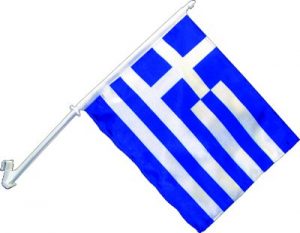The Allied Powers suspected Ataturk was going to take reprisals on the city for the conduct of...
Greeks
George Mauropoulos, "The Forgotten Genocide of the Greeks of Asia Minor", AHIF Policy Journal, American Hellenic Institute...
By 1923, upwards of 1 million Ottoman Greeks were victims to one of the first genocides of...
In Asia Minor, also known as Anatolia — there were the Pontian Greeks who lived along the...
The Greek Genocide (or Ottoman Greek Genocide) refers to the systematic extermination of the native Greek subjects...
The International Association of Genocide Scholars (IAGS) officially recognized the Ottoman Greek Genocide as genocide in 2007,...
The narrative of an "enlightened" and generally democratic Turkey, a country that is currently in the process...
Asia Minor and Pontos Hellenic Research Center Announce new book about genocide in the Ottoman Empire on...
While the numbers are not as high as Auschwitz or Treblinka, Jasenovac was notorious for its cruelty...
While Remembering and Commemorating the Armenian Genocide, Let’s Not Forget the Greeks and Assyrians


While Remembering and Commemorating the Armenian Genocide, Let’s Not Forget the Greeks and Assyrians
By the end of 1922, about three million Christians had been killed in the decade-long religious cleansing...
In recent years, some strong research has begun to emerge on the genocides against Armenians and Assyrians....
A lot has been written about Nagorno (Mountainous) Karabagh, or Artsakh; people have different opinions of it....
Last month, Turkish journalist Uzay Bulut wrote a revealing article, “Turkey Uncensored: A History of Censorship and...
Mr. Shirinian emphasized that the new book Genocide in the Ottoman Empire is the latest tangible effort...

















